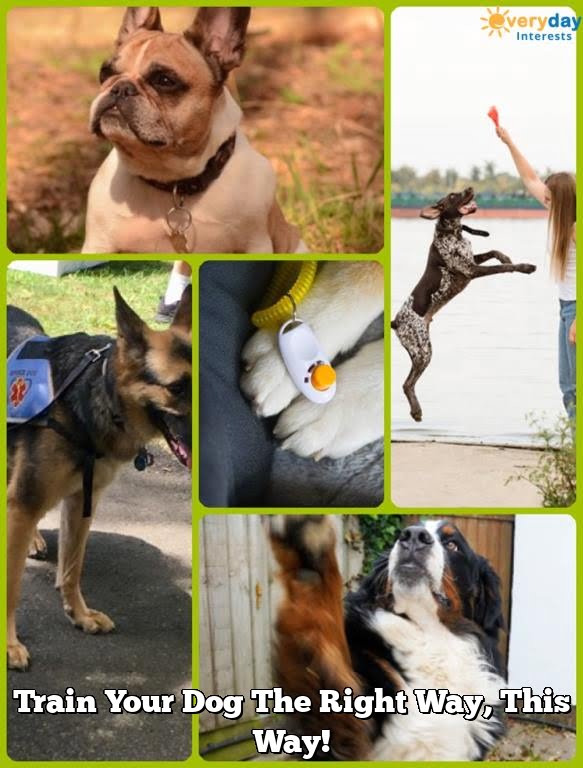Best Way To Train A Dog Off Leash
There are a few things to consider when training a dog to be off leash. The first is the dog’s temperament. Not all dogs are suited for off leash freedom. For example, a dog that is excitable and prone to chasing after things may be better off on a leash. Conversely, a dog that is calm and content to stay by your side may be ready for off leash freedom.
The second consideration is the dog’s obedience. Off leash freedom requires a high level of obedience from the dog. If the dog is not reliably responding to basic commands such as sit, stay and come, it is not ready to be off leash.
The third consideration is the environment. The dog should only be allowed off leash in a safe environment where there are no distractions and the dog can be easily recalled. A busy city street is not the right place for an off leash dog.
Once you have assessed that your dog is a good candidate for off leash freedom and has a high level of obedience, you can begin training. One of the most important things to remember is to be consistent with your commands and rewards. If the dog is allowed to break free from your commands when off leash, it will be difficult to train them to stay obedient when off leash.
The basic commands that you will need to train your dog for off leash freedom are sit, stay, come and heel. Start with basic obedience drills in a controlled environment such as a fenced in yard. Once the dog is responding reliably to these commands, you can start working on off leash drills.
The best way to train a dog off leash is to start with short distances and gradually increase the distance as the dog masters the commands. You should also mix up the environments in which you train, so the dog is prepared for any situation. If you only train in a fenced in yard, the dog may become confused when let off leash in an open park.
It is important to keep in mind that off leash freedom should never be taken for granted. The dog must continue to obey basic commands even when off leash. If the dog begins to ignore commands or exhibits bad behavior, it is time to put the leash back on. Off leash freedom should always be a privilege, not a right.
How To Train Dog Stop Pulling Leash
Dogs are some of the most popular pets in the world, and for good reason. They are loyal, loving, and make great companions. However, they can also be a lot of work. One of the most common issues dog owners face is training their dog to stop pulling on the leash.
There are a few different methods you can use to stop your dog from pulling on the leash. One popular method is to use a choke chain. This will help to correct your dog when he or she pulls on the leash. Another popular method is to use a shock collar. This will give your dog a small shock when he or she pulls on the leash.
However, there are also a few easier methods you can use to stop your dog from pulling on the leash. One easy method is to use a harness. This will help to evenly distribute the pressure on your dog’s body when he or she pulls on the leash. Another easy method is to use a retractable leash. This will give your dog more freedom to explore, but will also give you more control when he or she starts to pull.
Whichever method you choose, it is important to be consistent with your training. Dogs learn best when they are rewarded for good behavior and punished for bad behavior. Be patient and consistent with your training, and your dog will soon learn how to stop pulling on the leash.
How To Train A Dog Not To Pull On Leash
Many people struggle with trying to train their dog not to pull on the leash. It can be a frustrating experience for both the dog and the owner. Luckily, there are a few things you can do to help train your dog not to pull on the leash.
The first step is to make sure you are using the correct type of leash. A standard leash is not going to be effective in training a dog not to pull. Instead, you need to use a choke chain or a harness. The choke chain will apply pressure around the dog’s neck when he pulls on the leash, which will help to discourage him from pulling. The harness will help to distribute the pressure evenly across the dog’s body, which is less likely to cause discomfort or injury.
The next step is to make sure you are using the correct amount of pressure when you apply the choke chain or harness. You should only use enough pressure to prevent the dog from pulling on the leash. If you use too much pressure, you will only be teaching the dog to be afraid of the leash.
It is also important to be consistent with your training. If you allow the dog to pull on the leash sometimes, but not others, he will not understand what you expect from him. You need to be patient and consistent with your training, and eventually the dog will learn to not pull on the leash.
Best Way To Train Dog Off Leash
First, it is important to understand that not all dogs are capable of being trained to be off leash. Some dogs are simply too prone to distraction or too reactive to other dogs and people to be able to be trusted to roam free. If you have a dog that falls into this category, don’t despair – there are still plenty of ways to enjoy spending time with your pet without relying on a leash.
For dogs that can be trained to be off leash, there are a few basic steps that need to be followed in order to ensure success. The most important part of this process is to start with basic obedience commands such as sit, stay, come, and down. Once your dog has a strong understanding of these commands, you can start working on off leash training.
The first step in training a dog to be off leash is to find a safe, open area where you can let your dog roam free. This could be a park, a large open field, or even your own backyard. Once you have found a suitable area, start by giving your dog a command to stay. Once your dog is staying reliably, begin to slowly increase the distance between you and your pet. If your dog starts to get distracted or starts to wander off, give the command to come back to you and start over with increasing the distance again.
It is important to be patient and consistent with this process. It may take weeks or even months for your dog to be able to be off leash reliably. But with patience and perseverance, you will be able to enjoy spending time with your pet without having to worry about a leash.

Welcome to the blog! I am a professional dog trainer and have been working with dogs for many years. In this blog, I will be discussing various topics related to dog training, including tips, tricks, and advice. I hope you find this information helpful and informative. Thanks for reading!





